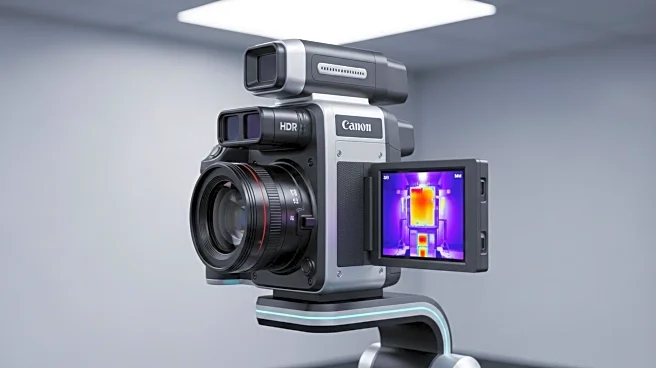What is the story about?
What's Happening?
The SPIRIT system, a single-pixel infrared imaging thermometry technology, has been developed to map the temperature distribution of human inner canthi with high precision. This system utilizes a sophisticated encoding pattern to efficiently measure temperature distribution, achieving a resolution of 0.3°C. The SPIRIT system's design includes a ZnSe lens and a photodiode cooled by a Peltier thermoelectric cooler, allowing it to capture thermal radiation from the inner canthi. The system's encoding patterns are derived from a cyclic S-matrix, which enhances noise reduction and computational efficiency. The technology has been tested on 39 volunteers, demonstrating its capability to accurately map temperature variations in the inner canthi, which are crucial for fever screening and other medical assessments.
Why It's Important?
The development of the SPIRIT system represents a significant advancement in non-invasive medical diagnostics. By providing precise temperature mapping of the inner canthi, this technology could improve fever screening processes, particularly in public health settings where rapid and accurate assessments are critical. The ability to detect subtle temperature variations can aid in early diagnosis of illnesses, potentially reducing the spread of infectious diseases. Additionally, the system's high resolution and efficiency make it a valuable tool for medical research and clinical applications, offering insights into physiological and pathological conditions.
What's Next?
Future applications of the SPIRIT system could extend beyond medical diagnostics to include monitoring physiological changes related to stress, emotional states, and other health indicators. Researchers may explore integrating this technology into wearable devices for continuous health monitoring. Further development could also focus on enhancing the system's portability and ease of use, making it accessible for broader clinical and consumer markets. Collaboration with healthcare providers and technology companies could accelerate the adoption of this innovative imaging solution.
Beyond the Headlines
The SPIRIT system's ability to map temperature with high precision opens up new possibilities for personalized medicine. By understanding individual temperature baselines and variations, healthcare providers can tailor treatments and interventions more effectively. The ethical implications of widespread temperature monitoring, such as privacy concerns and data security, will need to be addressed as the technology becomes more prevalent. Additionally, the system's application in diverse populations could provide valuable data on how different factors, such as age, gender, and ethnicity, influence temperature regulation.

















